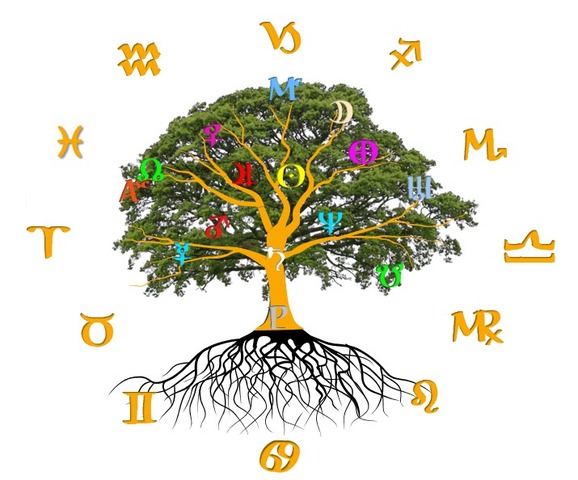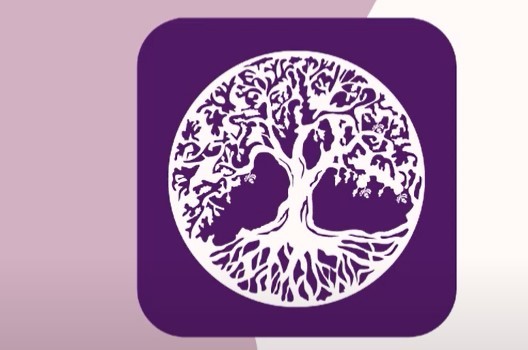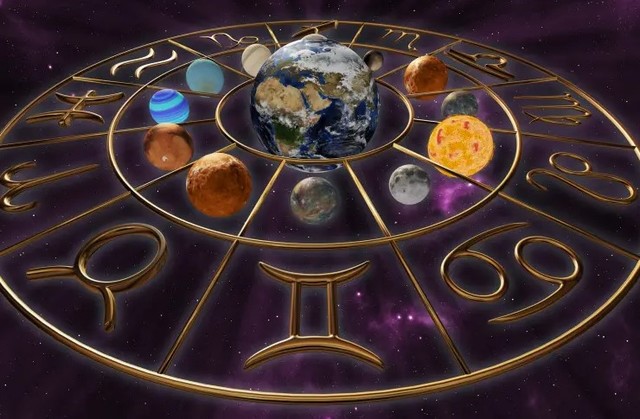Astrogenealogy, the intriguing fusion of astrology and genealogy, has gained traction as a discipline that delves into family legacies through the lens of a natal chart.
This field is deeply rooted in the realm of family constellations and transgenerational psychology, extending its branches into the cosmic skies to uncover hidden imprints and patterns within a family tree.

The Origins and Foundations of Astrogenealogy
The term "astrogenealogy" is a fusion of "astro," denoting astrology, and "genealogy," which pertains to the study of family lineages. This approach to astrology is influenced by the concepts of transgenerational psychology that emerged in the 1970s. French psychoanalysts began to explore the deeper dimensions of the family unconscious, uncovering unaddressed themes spanning generations.
They revealed that unresolved conflicts, such as secrets, blocked mourning, shame, suicides, and various traumas, had an intergenerational impact. These emotional imprints, left unprocessed, were blindly repeated across generations, attempting to heal and release.

The Astrological Sybols
Astrogenealogy goes beyond merely examining astrological symbols as representatives of ancestors. It involves embracing complex and profound concepts regarding family dynamics. It encompasses several dimensions:
1. Transgenerational Memories: Events occurring in ancestors from three or more generations back, even when there's little information about them.
2. Intergenerational Bonds: Relationships with parents, grandparents, uncles, and the experiences within the family unit.
3. Gestational Intent: Surrounding circumstances during conception, intrauterine memories, birth, and early years of life.
4. Unconscious Survival Programs: Loyalties, implications, family contracts, codes, inherited beliefs translating into tragic destinies, blind repetitions, systemic compensations, and reparations.
5. Role Within the Family System: The individual's role and position within the family constellation.

The Natal Chart as a Portal to Ancestral Narratives
The natal chart becomes a map of the family's past, where the ancestral experiences are brought to life in a new member inheriting certain themes. This heritage is distributed among descendants. Notably, a person can have systemic connections with specific ancestors rather than others, leading to varying loyalties even among siblings.
This unconscious repetition of ancestral imprints often leads to tragic destinies and unexplainable challenges, influencing relationships, behaviors, and the individual's life experience. The natal chart serves as a tool to broaden perspective, unveiling the significance of these experiences and their impact. It aids in recognizing and appreciating the talents gained through family membership.

Elemental Significance in Astrogenealogy:
The prevalence of specific elements within the natal chart carries profound ancestral implications. Elements link to transgenerational memories, prevalent family themes, loyalties, and tendencies in beliefs and behaviors.
1. Fire Element: Associated with action, enthusiasm, initiative, and courage. Often linked to themes of violence, anger, or aggression in the family. Aries signifies entrepreneurial figures, pioneers, and individualists who paved their own paths. Leo represents stories of honor, pride, and leadership. Sagittarius embodies migratory memories, ancestors who traversed territories for a better life.
2. Earth Element: Addresses material security concerns, financial and concrete matters in the family. Taurean themes include finances, ancestral conservatism, and resistance to change. Virgo focuses on health issues within the family and caretakers who sacrificed for the family's well-being. Capricorn signifies entrepreneurs and authoritative figures driven by ambition and discipline.
3. Air Element: Reflects family relationships and connections, social themes, communication, and education. Geminian ties are often pivotal, requiring exploration of parental or grandparental sibling relationships. Libra emphasizes partner and partnership dynamics, with the individual's mission often involving harmonious collaboration. Aquarius resonates with social and collective themes, exploring the presence of rebels or outsiders in the family.
4. Water Element: Represents themes of love, emotional dependency, and family cohesion. Cancer signifies motherhood, child care, and stories of abandonment or loneliness. Scorpio unveils deep and difficult-to-manage emotions like secrets, taboos, and hidden traumas. Pisces highlights family victims, disappeared or mysterious figures.

Planet Insights in Astrogenealogy
Planets represent not only individuals in the family but also the lessons, attributes, and unconscious patterns inherited from family members. They shed light on familial functions, the influence of certain family members, and the personal growth derived from these relationships.
1. The Sun: Represents the individual's self and potential for self-expression. Sheds light on how father figures and significant men were perceived in the family, symbolizing vitality and strength.
2. The Moon: Reflects family loyalties and the search for belonging and protection. Guards family memories and reveals relationships with mother figures and women.
3. Mercury: Illustrates sibling relationships, communication dynamics, language, and studies.
4. Venus: Unveils partnership models, love, pleasure, and financial themes. Highlights relationships with women within the family.
5. Mars: Addresses conflicts, assertion, intimacy and male figures in the family. Also reveals the ability to fight for desires and defend against threats.
6. Jupiter: Explores the family's cultural beliefs, ideologies, and links to the wider society. Symbolizes mentors and protectors.
7. Saturn: Touches on elder family members, authority figures, and themes of responsibility, discipline, and ambition.
8. Uranus: Reveals rebels and outsiders in the family, indicating sudden and unpredictable disruptions.
9. Neptune: Explores spirituality, empathy, and artistic inspiration, but can also highlight themes of addiction and mental health struggles.
10. Pluto: Addresses intense experiences such as traumas and transformative events within the family.
Additional Astrological Markers:
1. Chiron: Points to wounds within the family and themes of humiliation, shame, and inferiority. Can relate to disabilities or feelings of exclusion.
2. Lilith: Reveals oppression, suppressed intimacy, betrayal, anger, and exclusion within the family.

Illustrative Case:
Drew Barrymore, the actress, exemplifies how astrogenealogy unveils profound family imprints. Coming from a lineage of at least five generations of actors, Barrymore's Piscean energy in the 10th house clearly reflects her family's dramatic legacy. Abandonment issues, orphanhood, and solitude are indicated by her Moon conjunct Saturn in a water sign. Barrymore's father abandoned her, mirroring a pattern of neglect seen throughout her family's history. The water element, particularly Pisces, often signifies addiction and mental health issues, prevalent across generations. Barrymore herself battled addiction from a young age. Yet, her story also illustrates how one can rewrite a family narrative, transforming pain into wisdom and altering the trajectory for future generations.
Astrogenealogy emerges as a powerful tool for comprehending and healing family legacies. Deciphering the natal chart through this lens provides insight into personal conflicts, unearths unconscious loyalties and mandates, and liberates individuals from ancestral burdens. By exploring one's own chart, individuals not only release these burdens but also contribute to the healing of the entire family tree. Astrogenealogy, as an accompaniment to psychological astrology, provides a holistic path toward self-discovery and transformation.
You may be interested too
The Emotional Calendar 2026: Months Of Greatest And Least Attraction